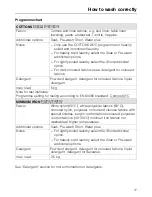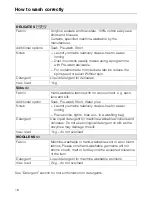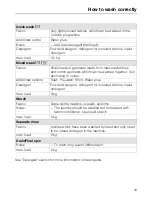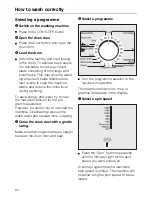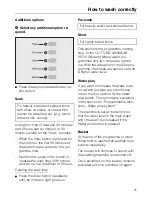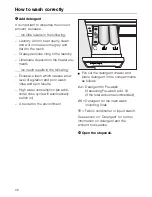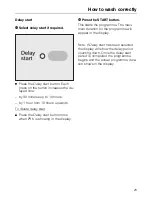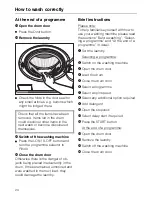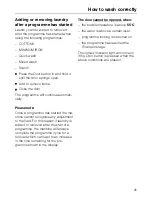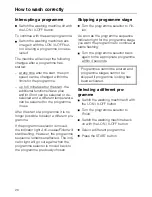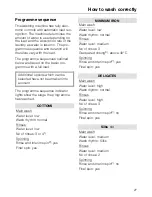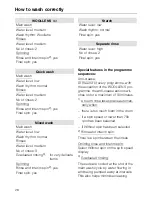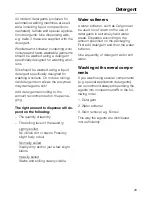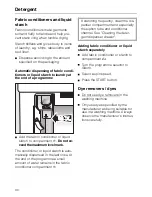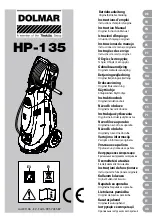
Washing environmentally and economically
– Water consumption and energy
usage are determined by the size of
the load. Load to the maximum rec-
ommended for the programme se-
lected.
– To save energy wash normally and
lightly soiled laundry at lower tem-
peratures. The 95°C Cottons pro-
gramme is probably only needed in
exceptional circumstances, e.g. for
oil based stains or where a very hot
wash is required.
– Use the
Mixed wash
or the
Quick
wash
programme for smaller
amounts of laundry.
– A main wash (programme without
pre-wash) is sufficient for cleaning
normally soiled laundry.
– By using the additional option
Soak
for heavily soiled laundry you can se-
lect a lower temperature in the main
wash.
– Use the additional option
Soak
in-
stead of
Pre-wash
with heavily soiled
laundry.
If
Soak
is followed immediately by a
main wash the same suds are used.
– Use the
Short
wash option for nor-
mally or very lightly soiled laundry.
– Do not exceed the amounts of deter-
gent which may be recommended
by the manufacturer on the packa-
ging.
– Reduce the amounts of detergent
with smaller loads, (e.g. with a half
load, approx. one third less deter-
gent).
– Select the highest suitable spin
speed in the wash programme when
tumble drying afterwards.
– Load recognition and automatic rins-
ing can cause the duration of a pro-
gramme to vary greatly. The main
wash may be shortened and a rinse
cycle omitted depending on the
amount of laundry.
Washing environmentally and economically
15

















